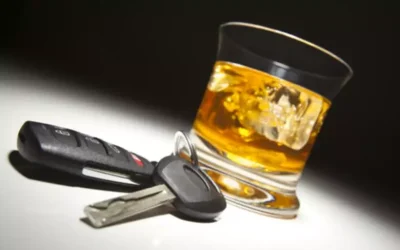Your loved one must maintain a strong commitment to recovery to prevent it. Without it, individuals may struggle to stay on track and achieve long-term success. By making this commitment, I am taking a proactive step towards living a life that is happy, healthy, and fulfilling. I am committed to prioritizing my well-being and creating a future that is bright and full of possibilities. Evaluate the tone to guarantee it aligns with your message of determination and hope.

Staying Sober in Early Recovery
Sharing your commitment letter with your support system, such as your sponsor, therapist, or support group, can open up communication channels. It allows them to better understand your goals and offer more targeted support. Your commitment letter can serve as a conversation starter, helping you and your support system have more meaningful discussions about your recovery journey.

#13. Consider Sharing
Generally speaking, we want to be better, do better, feel better, and live better. We want to go from where we are currently residing to a situation where we believe we will be happier and more fulfilled. We want to overcome our fears and limitations so that we can break free, yet so often something is holding us back. Trust in ourselves, others, the world, and our spiritual faith all play an important role in our ability to find ease in change.
Make Smaller Goals
- I remember bringing you home from the hospital for the first time.
- This will help me manage stress and anxiety more effectively, allowing me to maintain a positive outlook on life.
- We also know that the support of family, friends and community has a huge impact on a person’s recovery journey.
- If you find yourself saying things like, “I’m not drinking right now,” or, “I’m taking a break from drinking,” you’re setting yourself up for a slip somewhere down the line.
- In the end, with support, you put your words and willingness into action and have made tremendous progress.
After acknowledging how actions tied to their addictions had a negative impact on people in their lives, those in 12-step recovery programs commit to making direct amends whenever possible. A 12-step program is designed to encourage long-term sobriety, by fostering a spirituality for recovery. Each step signifies a new challenge to reflect commitment to recovery letter and/or act in a way that changes old mindsets and behaviors that once fed addiction. Through mutual support groups like Alcoholics Anonymous, members learn and practice these spiritual steps and principles, with a view to staying sober and helping others do the same. Fully committing to your addiction recovery is hard work, but worth it.
- Your commitment letter can serve as a conversation starter, helping you and your support system have more meaningful discussions about your recovery journey.
- As such, an impact letter, or a letter summarizing the effects of addiction on both you and your larger social circle, is highly recommended.
- Recovery is more than those pink clouds over the hopeful sunset.
- Committing to addiction recovery is the first step towards long-term wellness and sobriety.
#2. Clarifies Goals and Objectives
- Two decades ago, when I first walked through the doors of KSAT, I never could have imagined the incredible journey ahead.
- It’s okay to be as open and honest as you’d like and feel free to explain specific traits or moments that exemplify your feelings.
- It can help you focus on the bigger picture and the positive outcomes that await you on your journey.
- When it appears there is no resolution in sight, an intervention may seem like the only possible opportunity to communicate the real nature of a situation.
- I am using these substances and people as substances because I do not feel up to the task of caring for myself.
- On the opposite side of the street are those individuals who simply say, “All of my amends would hurt people.
One of the most important people in my life became a stranger to me. Your loved one can benefit from a supervised medical detox program intended to reduce the intensity of withdrawal symptoms and cravings during detoxification. After a week or so, your loved one can transition into ongoing treatment. Our 30-day inpatient program provides the most structured and supportive route to recovery. An effective impact letter should illustrate empathy, clear communication, and support while addressing the specific consequences and potential for positive change. The recovery letter can be addressed to someone recuperating from an illness, accident or surgery .
Alberta premier’s addictions mandate includes controversial involuntary treatment law – Global News
Alberta premier’s addictions mandate includes controversial involuntary treatment law.
Posted: Wed, 02 Aug 2023 07:00:00 GMT [source]
I recall the day when we had plans to hang out, but you didn’t show up. I later found out that you were battling addiction instead, and it broke my heart. Your laughter, which used to light up the room, had become a rarity, and it left a void in our circle of friends.
The Experience Blog
Your addiction not only impacted you but also left a profound gap in our lives, as we all missed the person you used to be. Here, you can share specific examples of how your life has changed. You might talk about how you’ve grown as a person, how your outlook on life has changed, or how you’ve learned valuable lessons from the experience. The impact of drug and alcohol addiction is widespread and putting one’s thoughts into a letter can assist in healing all who are affected. Though our relationship has been a bit strained recently, I want you to know no words could ever express how much you mean to me. No matter what happens, you will always be my child, and nothing could ever change how much I love you.